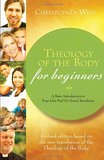Largely absent in the discussion thus far has been the perspective that religion brings. As in secular circles, the positions vary widely between and among different religious traditions. In the more liberal Protestant groups, the rhetoric can be very similar to what secular progressives promote. Read the following excerpts from an article by Jay Johnson of Pacific School of Religion, in which he argues that current culture shifts can inform and alter the way Christians read and apply the Bible (Source).
—
“Biblical Sexuality and Gender: Renewing Christian Witness to the Gospel”
How do Christians proclaim the love of God in Christ and in the power of the Holy Spirit today? As in every generation, that broad question needs to be contextualized and addressed in relation to key cultural, political, and economic issues. For more than fifty years, Christian communities have struggled in various ways with their proclamation of the gospel in relation to “homosexuality,” or the lives of those who identify as lesbian, gay, bisexual, or transgender (LGBT).
That struggle has divided many Christian communities, ostracized countless individuals, and weakened Christian witness to the gospel. The Bible has been and continues to be the most frequently cited reason why people either condemn or refuse to accept gay and lesbian people, and more recently also bisexual and transgender people.
Biblical scholarship on these questions over the last fifty years has helped many Christian communities to welcome LGBT people and many LGBT people have likewise found new ways to integrate their sexuality and gender expression with their Christian faith. The following is a review of just some of that biblical scholarship and the role it can play in Christian theological reflection, especially for the sake of bearing witness to the good news of Christian faith today.
It is important to realize, first of all, that biblical writers devoted very little energy and attention to same-sex desire or relationships. There are only five passages in the Bible that are most often quoted and which appear to have any direct relation to this topic:
- Genesis 19:1-13
- Leviticus 18:22 and 20:13
- Romans 1:26-27
- 1 Corinthians 6:9-10
- 1 Timothy 1:8-11
Two other passages are sometimes mentioned as well:
- Genesis 1 and 2
- Jude 6-7
Like every other biblical passage, each of those seven texts deserves careful attention by keeping in mind these three elements of responsible and faithful reading:
- Biblical texts never speak for themselves; they always need interpretation. Indeed, texts don’t speak at all. But people do speak, and people of faith often speak with biblical texts. How people speak with biblical texts is informed to a large degree by their cultural contexts and social histories.
- Translating ancient languages into contemporary languages always involves interpretation; many words and concepts in both ancient Hebrew and Greek have no direct equivalents in modern languages and translators often disagree about how to translate difficult words and phrases.
- Excerpting small sections or even single verses from larger narratives and arguments will always distort the biblical writer’s message. Everyone does this from time to time, and it is not necessarily “bad” or “wrong” to do so. But this also means that everyone needs to take responsibility for how and why a given passage is quoted and for what purpose.
In addition to those guidelines for reading biblical texts responsibly, passages that deal with human sexuality and gender deserve additional notes of caution:
- The word “homosexual” was invented in the nineteenth century and appears nowhere in the original Hebrew or Greek versions of the Bible. German sexologists invented the term “homosexuality” to describe their view of a particular “sexual orientation” or identity that they believed was evident among some human beings. This concept would have been completely foreign to biblical writers.
- In the ancient cultural contexts of the biblical writers, appropriate sexual relations had very little to do with gender and much more to do with the social status and power of one’s sexual partner. Socially acceptable sexual relations were always understood as involving a socially dominant partner with a socially submissive partner. Men were by definition socially dominant. Many others were considered socially submissive: women, slaves (of either gender), lower economic classes (of either gender), and youth (of either gender). The modern notion of “peer marriage” or a union of “equals” would have been entirely unknown in ancient Mediterranean cultures.
- Contemporary scientific and biological understandings of sexuality, procreation, and gender were completely unknown in the ancient world. Those who today identify as “bisexual” or “transgender” present additional insights into these questions, which need further attention in both scholarly and church settings.
Rather than merely “refuting” problematic biblical texts, Christian faith communities today, as in every generation, rightly seek insights from the Bible for their gospel mission in the world. Discerning carefully how to read the Bible regarding sexuality and gender thus remains critically important for every Christian congregation.
Conclusion: Abundant Life
Christians have always read the Bible in many different ways over many centuries. Christians have likewise always insisted on finding a living word in these ancient texts for their own day and circumstances. In that work, Christians have frequently turned to the four gospel accounts as their primary guide and inspiration in proclaiming the good news of God’s love in Christ and through the power of the Holy Spirit, whom Jesus promised would lead his followers deeper into truth (John 16:13).
The Spirit continues to lead the Church into shared discernment over a wide range of issues that biblical writers could not have anticipated. Paul himself understood this and reminded the Corinthians that our knowledge will always be incomplete and partial (1 Corinthians 13:9-10). Meanwhile, and just as Paul urged, Christians strive to live with faith, hope, and love, and to bear witness to the greatest of these, which is love (1 Corinthians 13:13).
The Church today can continue in that faithful, hopeful, and loving discernment in a number of ways. Over the last sixty years, for example, social, psychological, and bio-medical sciences have contributed to a gradual cultural shift regarding sexual orientation and gender identity. “Homosexuality” is no longer considered a pathological condition, as it once was in the early twentieth century, and which carried severe social consequences. Lesbian, gay, bisexual, and transgender people now participate openly in nearly every profession and walk of life. Just like different-gender couples, many LGBT people form stable and enduring relationships and some also raise children in their families.
This cultural shift in understanding can inform faithful readings of the Bible concerning LGBT people, especially in the light of modern biblical scholarship. Many Christian communities and clergy have come to believe that the truth into which the Spirit is leading them today resembles Peter’s spiritual insight concerning Gentiles: No one, he declared, should be called “profane or unclean” (Acts 10:28).
As the Church embraces that insight, it can extend the reach of God’s radical welcome and extravagant generosity, striving always to follow the One who came that all might have life, “and have it abundantly” (John 10:10).











